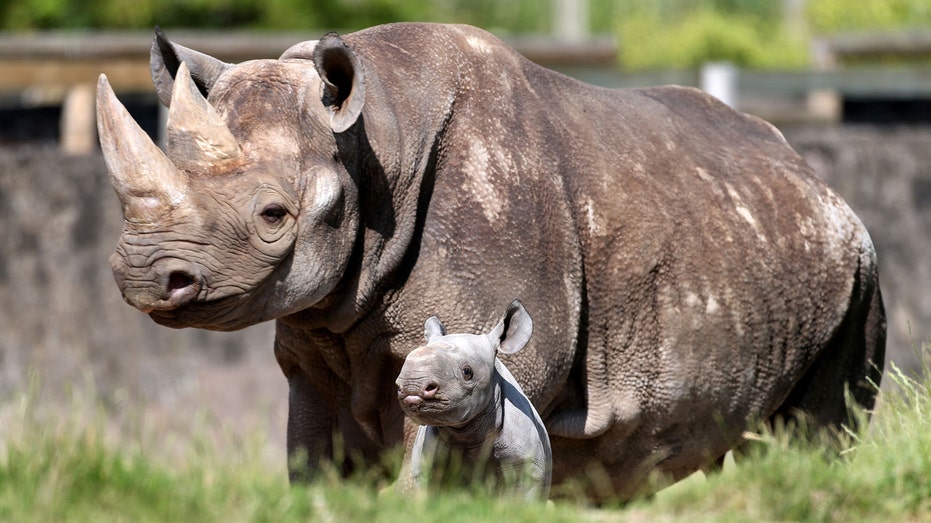UK zoo keeps its rhinos warm with upgraded heating system
Chester Zoo in northern England is partnering with Mitsubishi Electric to implement more sustainable heating, starting with the habitat of its critically endangered black rhinos.

Chester Zoo in northern England is partnering with Mitsubishi Electric to implement more sustainable heating throughout its 128-acre grounds, with a key focus on enhancing the habitat of its critically endangered Eastern black rhinos.
The partnership, announced on Tuesday, May 21, aims to meet the specific heating requirements of the rhinos, while also contributing to the zoo's broader sustainability targets.
"We have some very unique users in our buildings, with very, very specific environmental conditions," Chester's head of sustainability, Jennifer Kelly, told Reuters.
GORILLA AT CINCINNATI ZOO PLACED IN WORLD'S FIRST 3D-PRINTED TITANIUM CAST IS HEALING WELL
"Every building on our site has a different environmental condition that we need to create to have the best animal welfare standards and habitat conditions for the critically endangered species that we're caring for."
The Eastern black rhinos are the first to benefit from the new tech as they require a carefully controlled environment for their wellbeing. The rhinos' habitat features large open doors for their free movement, but this design can lead to substantial heat loss. Mitsubishi Electric's heat pump technology aims to counter this by providing a stable temperature range of 18 to 24 degrees, creating a comfortable environment for the rhinos while minimizing energy waste.
But have the rhinos noticed the change?
"Not at all. We haven't had any feedback that they've noticed that their heating has changed at all. If anything, we can claim a real success in terms of maintaining that high heat demand that they have in that we had a calf earlier this year. So they seem very happy and settled with the air source pump system," added Kelly.
This partnership with Mitsubishi forms part of Chester Zoo's commitment to its goals to reduce fossil fuel use and promote sustainability.
The zoo hopes that the air source heat pumps demonstrate what’s possible and show that if heat pumps can work in rhino habitats, they can work in residential and wider settings too.
"Our zoo will be 100 years old in 2031, so we do have some quite historic building stock on site that we need to retrofit," added Kelly.
"So far, we haven't found an application where an air source heat pump wouldn't work."
Reflecting their name, heat pumps are mostly known for their warming abilities. Even on cold days they operate by efficiently pulling in what heat exists outside from the air or the ground and using that to heat a special refrigerant liquid into gas. When that’s compressed, it warms up more. Pumping what results round the building raises the temperature to a comfortable level.
Chester Zoo, open since 1931, is home to over 37,000 animals across 500 species and is recognized globally for its conservation efforts.



